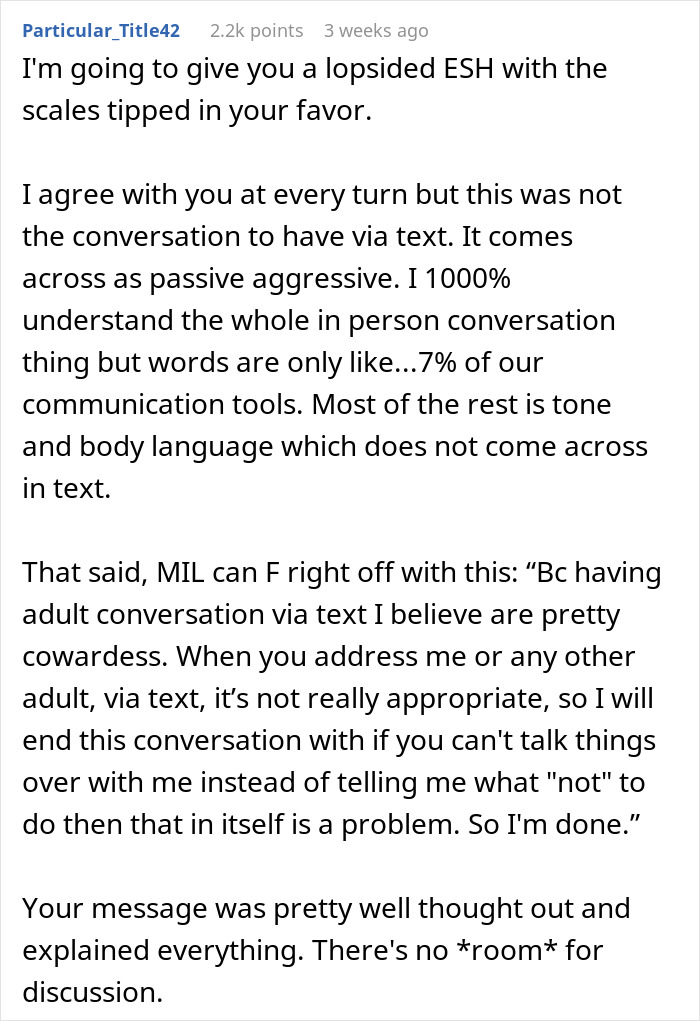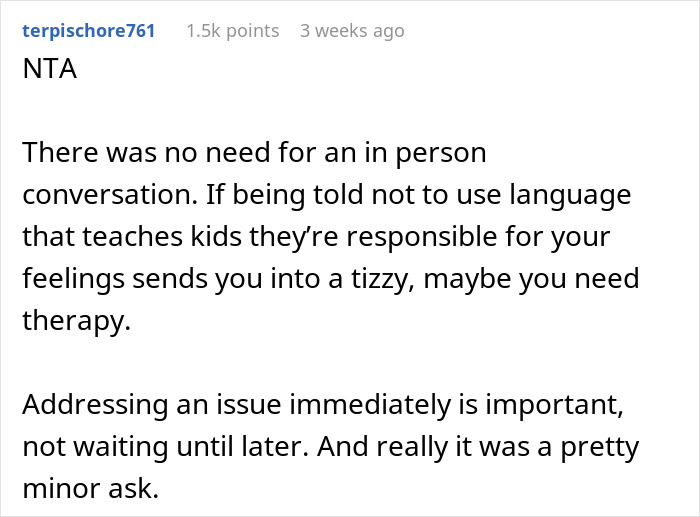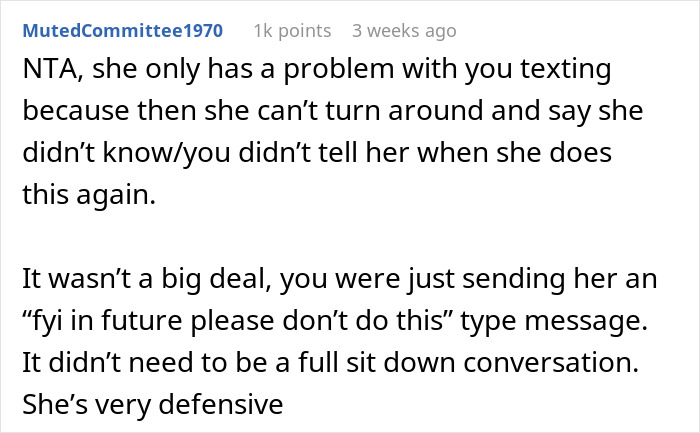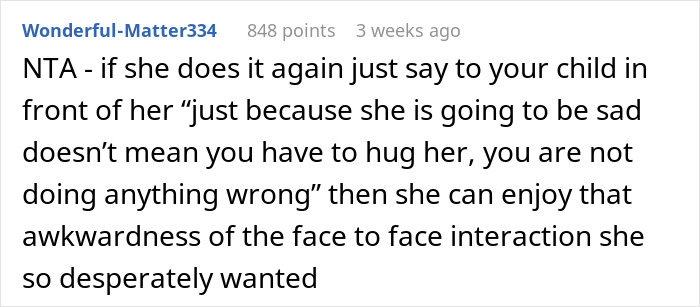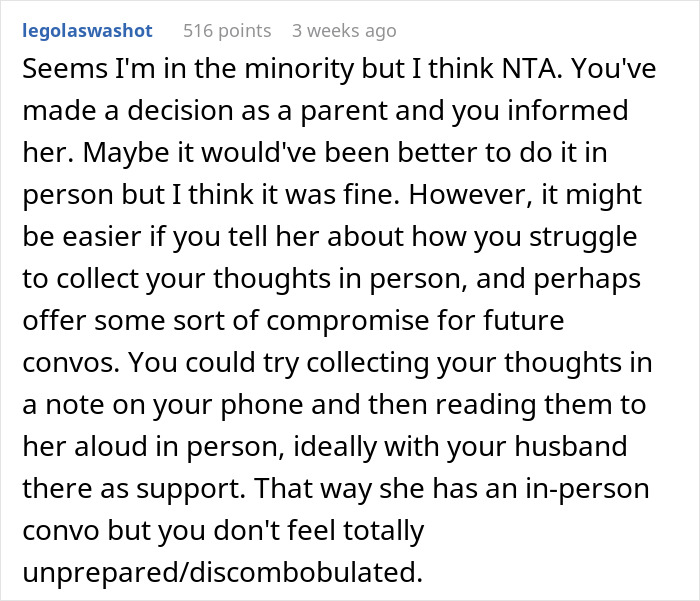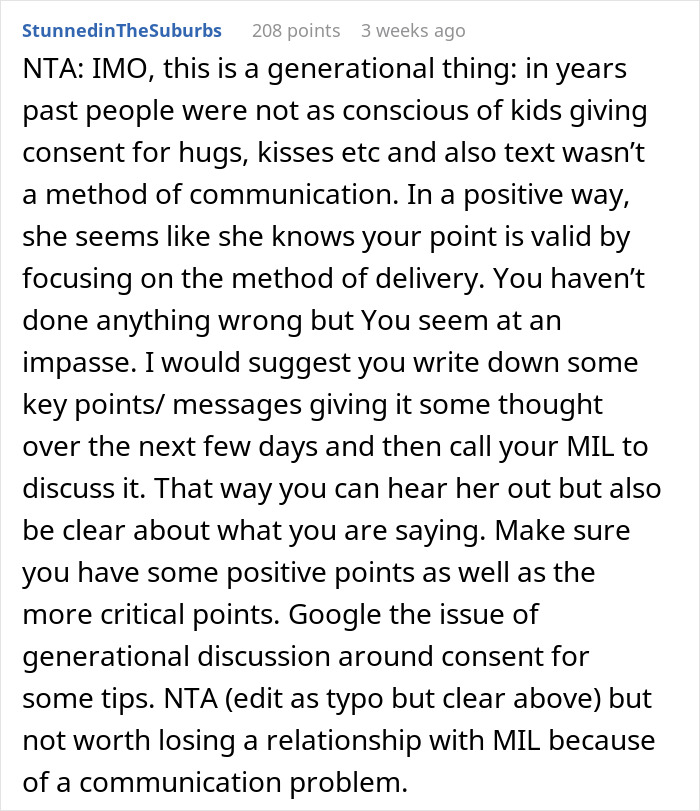A warm hug from a loved one can go a long way. It can make you feel safe and secure or assure you that everything is going to be okay. But are we obligated to hug our relatives when they’re expecting an embrace?
One mom recently shared on Reddit how an interaction that her future mother-in-law had with her toddler left her feeling bothered. Below, you’ll find the full story, as well as a conversation with the mother and some of the replies invested readers have shared.
This woman expressed to her grandson that she would have been disappointed if he didn’t give her a hug

Image credits: YuriArcursPeopleimages (not the actual photo)
Now, his mother is setting boundaries on how his grandmother should be speaking to him
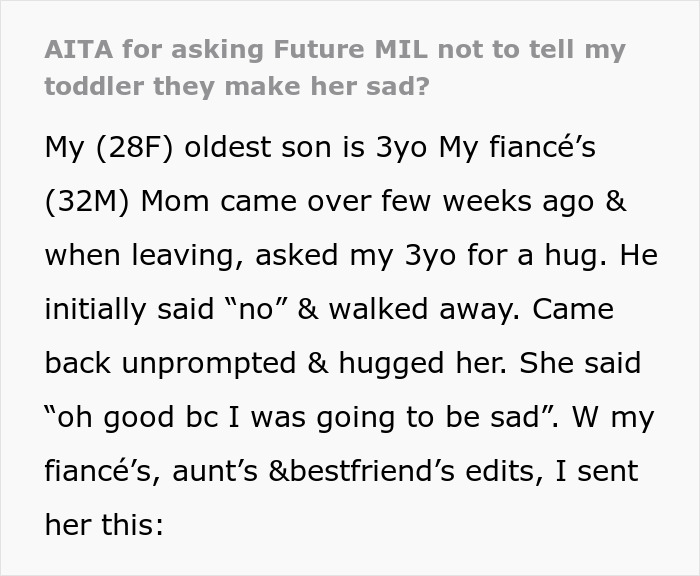
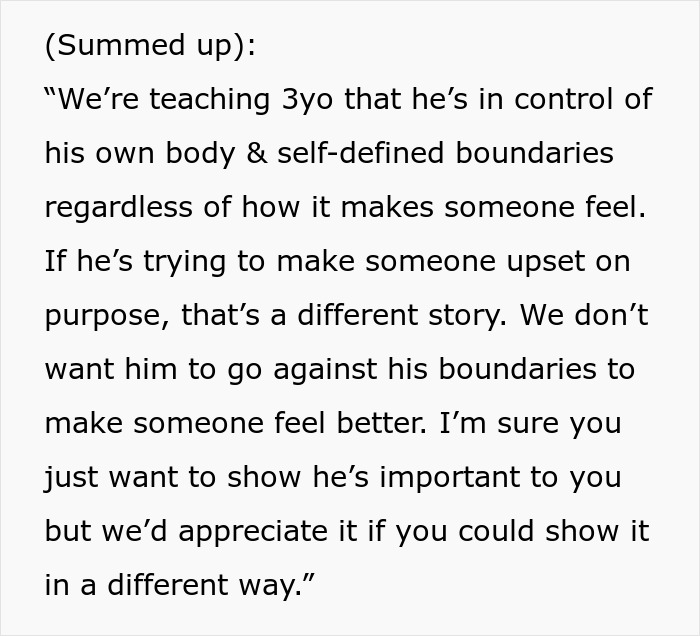

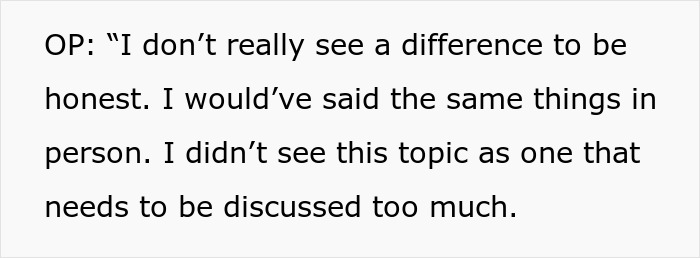
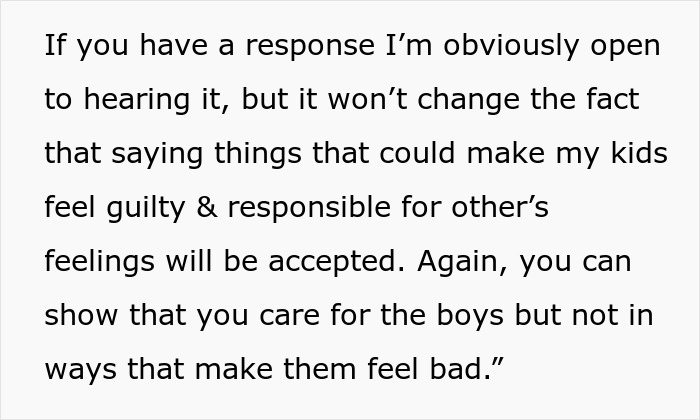
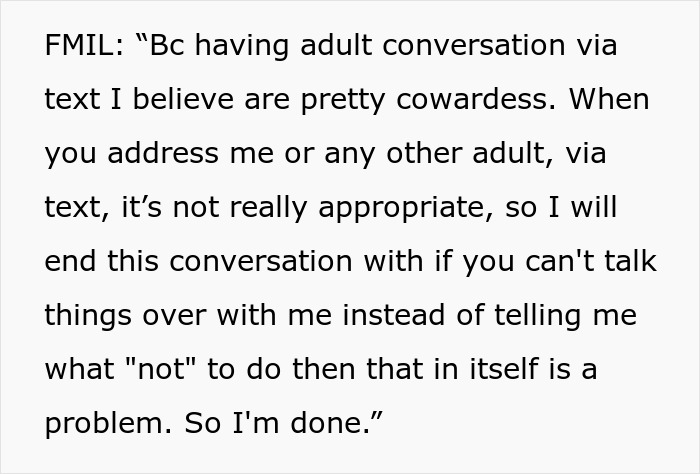
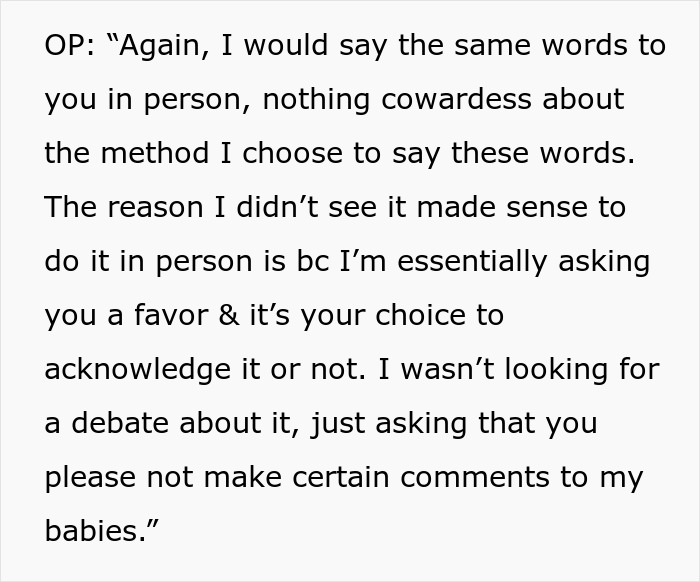


Image credits: westend61 (not the actual photo)

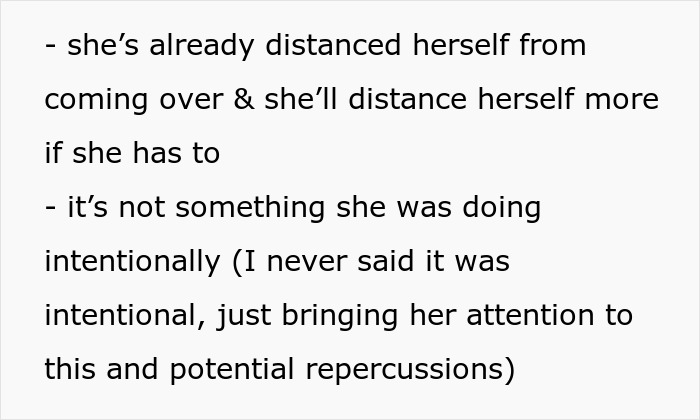
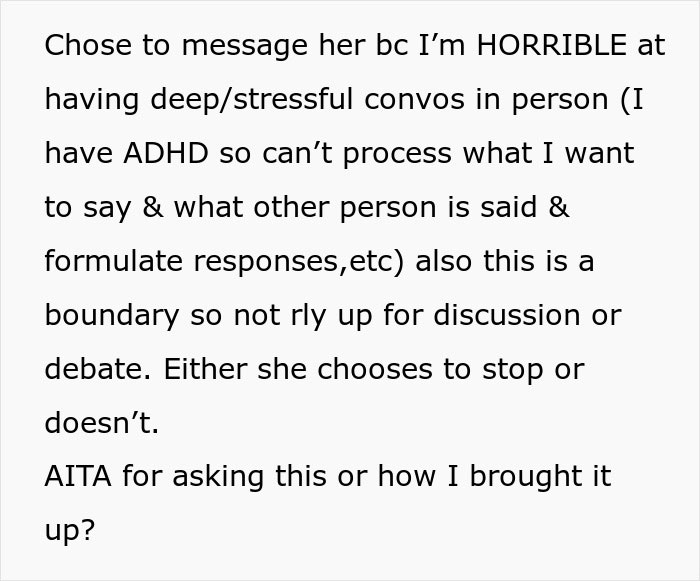
Image credits: u/Accomplished-Disk746
“I feel as though it’s my duty as his caretaker and mom to step in when I witness someone guilt tripping him, whether unintentionally or intentionally”
We got in touch with the mother who shared this story online in the first place, Reddit user Accomplished-Disk746, and lucky for us, she was kind enough to have a chat with Bored Panda. She noted that since posting, there have not been any concrete updates on the situation, as the only response she received from her future MIL is what she posted online. “She proceeded to reach out to her son (my partner) via text, stating that ‘if she needs to distance herself, she will.’ We have not had a follow-up conversation about this yet,” the mom explained.
While Accomplished-Disk746’s son did not express that he was bothered by his grandmother’s comment, his mom says that as a stay-at-home mom and his primary caretaker, she’s “seen first hand that he already feels extremely guilty for things that no one should ever apologize for.”
“There have been times where he apologizes when we say he can’t have a snack before dinner (which is a developmentally normal thing for his age to ask for),” she explained. “I’m heartbroken and dumbfounded about him saying sorry for asking for food. Because I have recognized this pattern of guilt, I feel as though it’s my duty as his caretaker and mom to step in when I witness someone guilt tripping him, whether unintentionally or intentionally.”
“If you start raising someone based on their natural self versus who you expect them to be, you will experience far less pushback and better results in the long run”
The mother also shared why it’s so important to teach children to be able to set boundaries from such a young age. “Two main reasons,” she told Bored Panda. “The first being that it has been found that children’s brains develop connections the fastest between birth and five years old.”
“Second, children are not extensions of a parents/caretakers. They are their own individuals now just as much as they are at twelve, eighteen, thirty, and so on,” Accomplished-Disk746 says. “To practice being an individual from a young age is so important. Having to relearn how to be fully independent/discovering yourself after you move out of your parent’s house is incredibly difficult.”
“Being independent is way more than learning to do your laundry and pay bills on time. Being independent means having the ability to rise to any occasion on your own, plus knowing what things you truly enjoy, not what someone else wants you to enjoy,” the mom continued. “If you start raising someone based on their natural self versus who you expect them to be, you will experience far less pushback and better results in the long run.”
Finally, Accomplished-Disk746 shared some wise words for our readers, particularly fellow parents. “Truly reflect on what it means to be independent. Discover yourself. Learn your own boundaries,” she noted. “Pass on generational blessings, not curses. Generational healing, not generational trauma. It starts by healing yourself and teaching your kids what you learned from your healing journey.”
Hugs can go a long way in lifting our moods and benefiting our health
Whether you consider yourself to be a hugger or not, there’s a reason why so many of us love a nice, warm embrace. According to Kory Floyd, PhD, professor of communication and psychology at the University of Arizona, a great hug can do wonders for your mind and your body. Floyd told Oprah Daily that hugging can lower a person’s blood pressure, heart rate, and stress hormones such as cortisol. One study has even found that women who are frequent huggers tend to have higher levels of oxytocin and lower blood pressure than those who are more picky about who they’ll hug. Meanwhile, hugs actually boost our immune systems as well, according to researchers from Carnegie Mellon.
But just because hugs can make us feel warm and fuzzy inside doesn’t mean that they’re always appropriate. There’s a time and a place for an embrace, and just like any other form of physical contact, it’s important for all parties to consent to a hug for it to be beneficial.
But consent is key any time physical affection is shown
When it comes to children in particular, there aren’t always a lot of things that they get to control in their daily lives. Their parents may choose the food they eat and pick out their clothes, and teachers instruct them on what to do every day at school. But as far as what they do with their bodies, kids should certainly have a say.
Amy Morin, LCSW wrote a piece for Verywell Family discussing why we should never force our children to hug anyone, and she points out that requiring kids to show affection sends them the message that they’re not in control of their own bodies. While asking your little one to hug Grandma might seem harmless, this can teach them to always comply with what adults tell them, even if they’re uncomfortable or the request is inappropriate.
Morin explains that kids should be taught that they have the right to choose how much physical affection they want from loved ones. They should understand that they’re in charge of their own bodies and who gets to touch them. This can also empower them to reject unwanted advances later in life because they know how to set boundaries around their bodies.
Kids can be taught to understand their bodily autonomy from a young age
For parents who want to teach their children they have the right to decline hugs or kisses from relatives, Magination Press says it can be helpful to have discussions with little ones about how to know whether or not they want a hug. Moms and dads might want to address how their kids’ bodies might feel when they do want to hug someone versus when they don’t. Parents can also equip their kids with the vocabulary to know how to explain to friends or adults that they don’t actually want a hug at the moment. Moms and dads can run through scenarios asking their little ones questions such as, “What would you do if someone tried to hug you without asking first?” to ensure that they don’t feel pressured into doing anything they don’t want to.
Bodily autonomy is something we should all feel empowered to embrace, regardless of how young or old we are. While parents have the right to make many decisions for their children, educating little ones about consent might be something that helps them make their own decisions too. We would love to hear your thoughts on this situation in the comments below, pandas. Then if you’re interested in reading another Bored Panda article discussing a similar topic, look no further than right here.
Some readers believed that the MIL didn’t do anything wrong at all
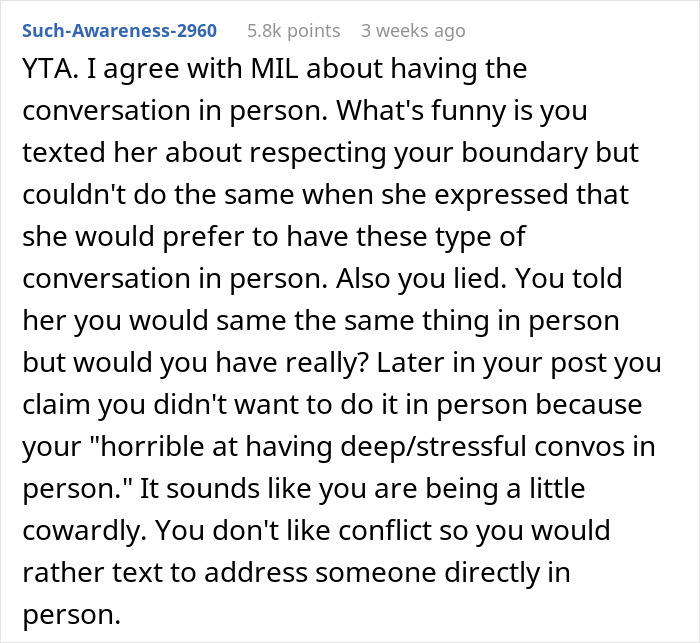
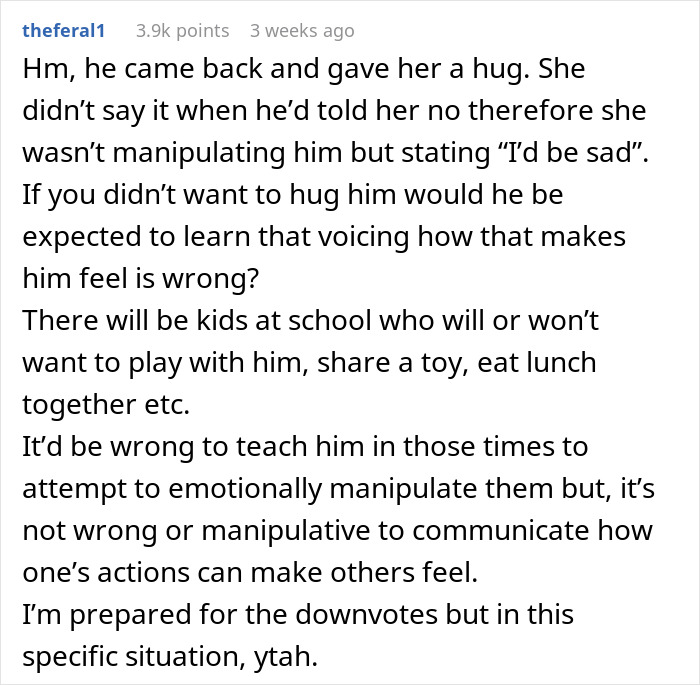
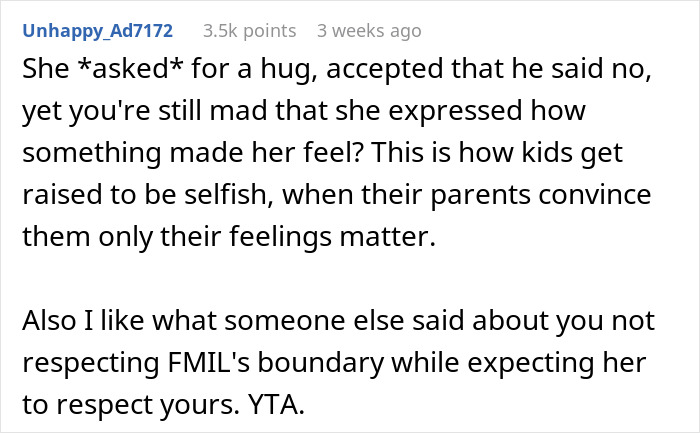

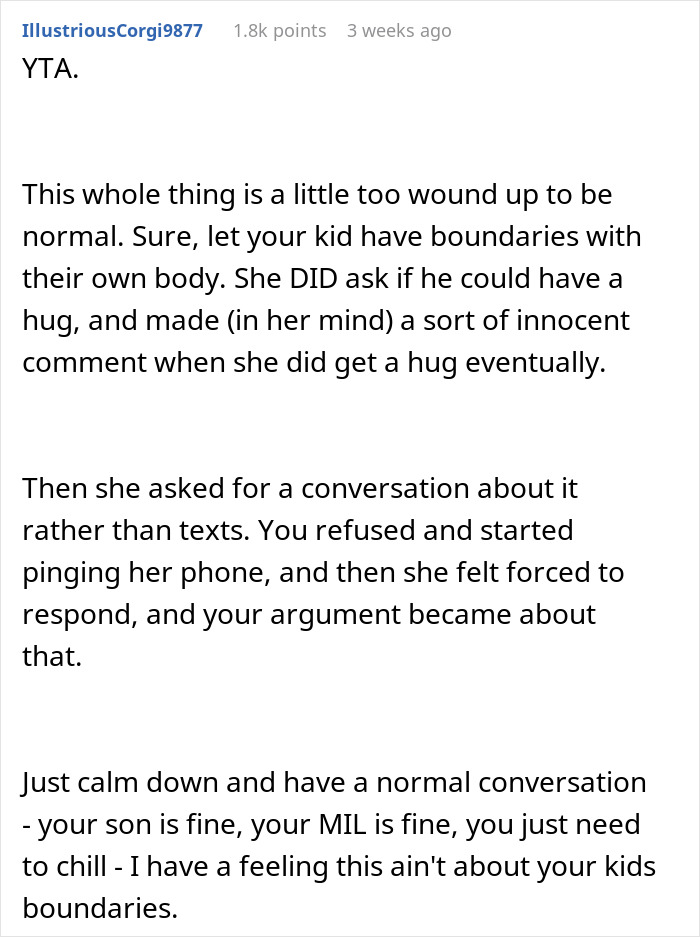

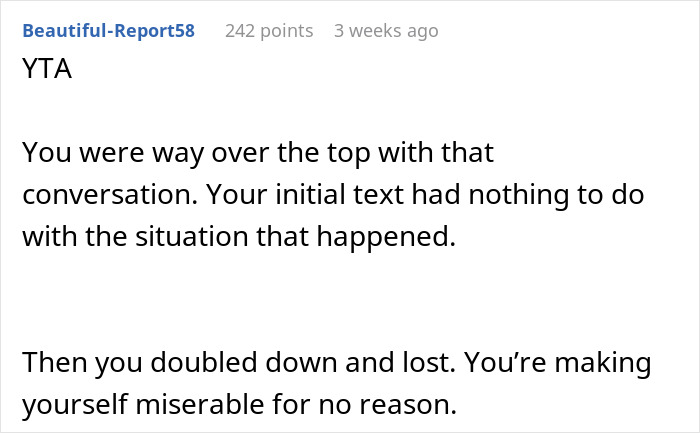
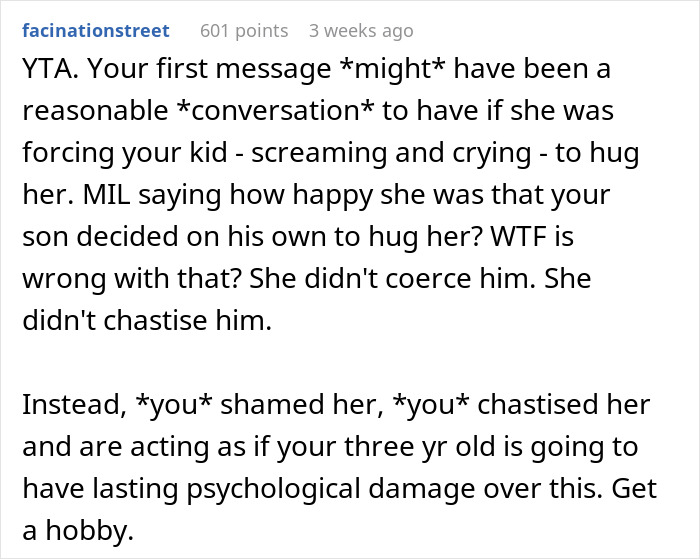
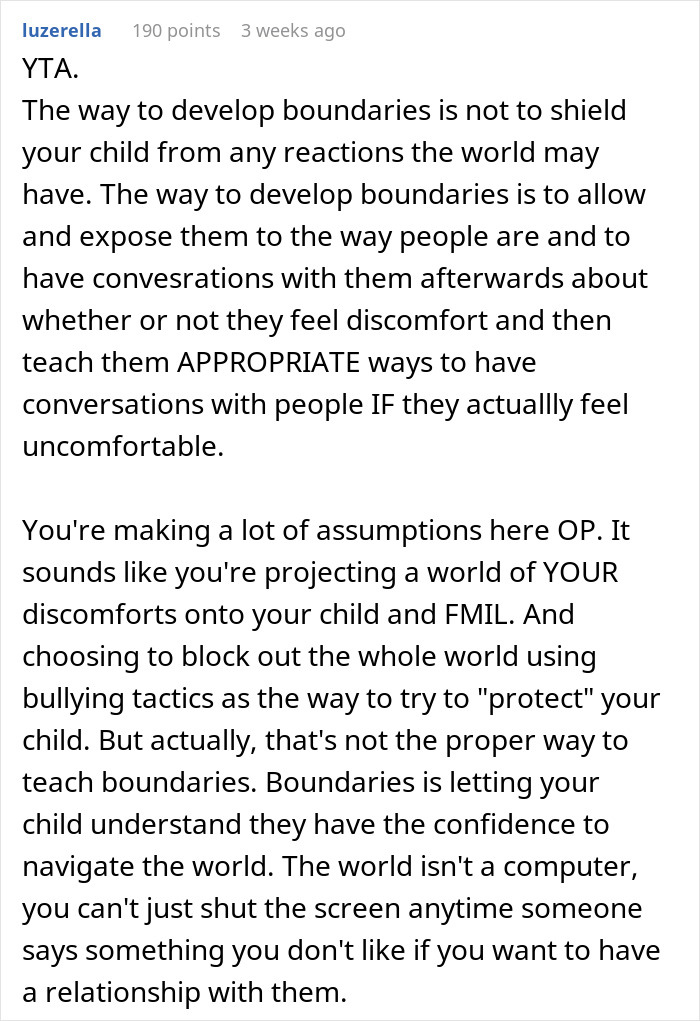
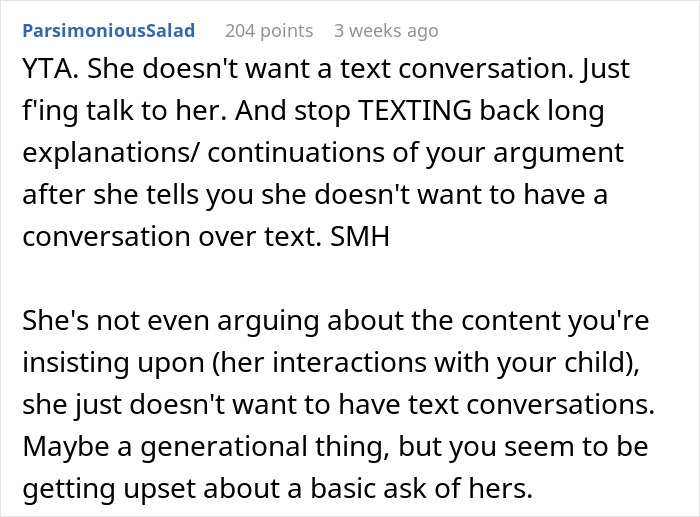
While others shared that they understood where the mom was coming from
